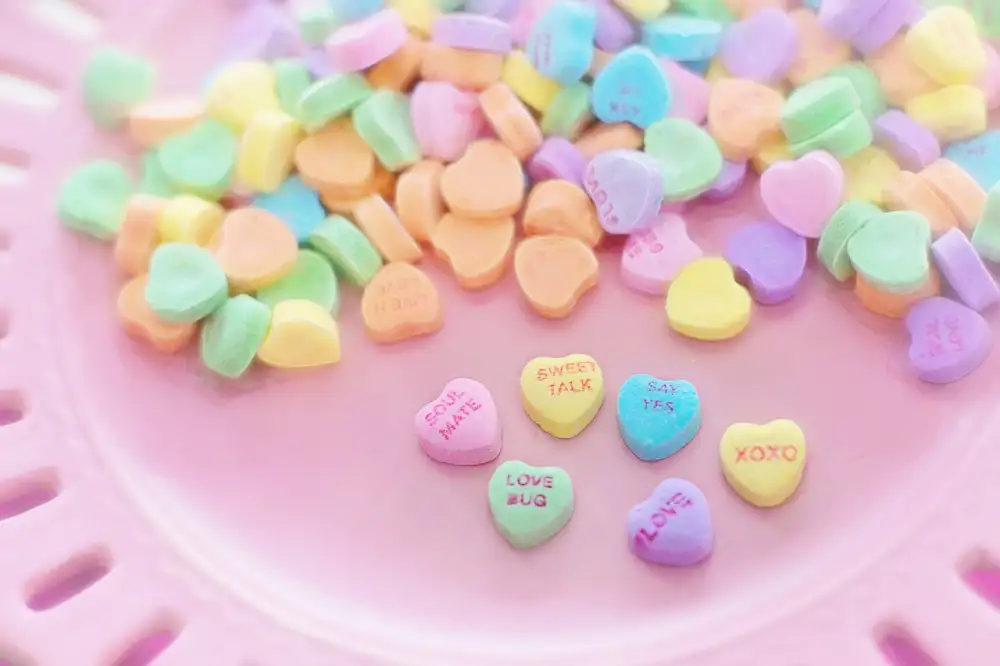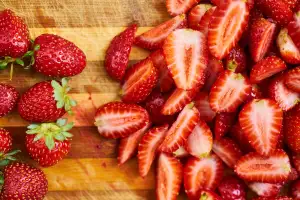Breaking News: Skittles Banned - Unveiling the Shocking Truth Behind the Prohibition

- The Background: Understanding the Skittles Craze
- The Controversy: Why Skittles Are Being Prohibited
- Health Concerns: Unveiling the Risks Associated with Skittles
- Legal Implications: Exploring the Laws Surrounding Skittles Ban
- Public Reaction: Mixed Responses to the Skittles Ban
- Alternatives: Discovering Delicious Substitutes for Skittles
In a shocking turn of events, the beloved candy, Skittles, has been banned. This news has left candy enthusiasts and fans of the colorful treat in disbelief. Skittles, known for their vibrant colors and fruity flavors, have been a staple in the confectionery world for decades. However, recent developments have forced authorities to take action and prohibit the sale and consumption of this once-popular candy. The reasons behind this ban are still shrouded in mystery, leaving many wondering what could have led to such a drastic measure. Join us as we delve into the background, controversy, health concerns, legal implications, public reaction, alternatives, and ultimately reflect on the impact of this unprecedented Skittles ban.
The Background: Understanding the Skittles Craze
Skittles, the bite-sized colorful candies that have captured the hearts and taste buds of millions around the world, have recently found themselves at the center of a controversy. But before we delve into the reasons behind this shocking ban, let's take a moment to understand the Skittles craze that has swept across nations.
Introduced in 1974 by Mars Inc., Skittles quickly became a beloved treat for people of all ages. With their vibrant colors and fruity flavors, these small candies offered a unique sensory experience that was hard to resist. From children who loved their playful appearance to adults who enjoyed their nostalgic charm, Skittles gained immense popularity over the years.
What made Skittles stand out from other candies was not just their taste but also their marketing campaigns. The iconic "Taste the Rainbow" slogan became synonymous with Skittles, encouraging consumers to embrace the diverse range of flavors available. This clever branding strategy created an emotional connection between consumers and the candy, making it more than just a sweet treat - it became a symbol of joy and fun.
As time went on, Skittles continued to innovate with new flavors and variations. Limited edition releases and collaborations with popular brands further fueled the Skittles craze, turning them into collectible items for enthusiasts. Social media platforms were flooded with posts showcasing creative ways to enjoy Skittles - from baking them into cakes to using them as toppings for ice cream sundaes.
The widespread popularity of Skittles led to an increase in consumption worldwide. However, this surge in demand also raised concerns about its impact on health and well-being. As we explore the controversy surrounding Skittles' prohibition, it is crucial to consider both sides of this sugary tale - the love for these colorful candies and the potential risks they might pose.
The Controversy: Why Skittles Are Being Prohibited
The controversy surrounding the prohibition of Skittles stems from concerns over their potential harm to consumers. Critics argue that Skittles contain high levels of artificial colors, flavors, and preservatives, which have been linked to various health issues. Additionally, there are claims that Skittles contribute to obesity and dental problems due to their high sugar content. These concerns have prompted authorities to take action in order to protect public health and well-being.
Health Concerns: Unveiling the Risks Associated with Skittles
While Skittles have long been a popular treat among both children and adults, recent studies have shed light on the potential health risks associated with consuming these colorful candies. One of the main concerns is their high sugar content, which can contribute to weight gain, tooth decay, and an increased risk of developing chronic conditions such as diabetes and heart disease. Additionally, Skittles contain artificial flavors and colors that have been linked to allergic reactions and hyperactivity in some individuals. It is important to be aware of these risks and consider healthier alternatives for satisfying our sweet cravings.
Legal Implications: Exploring the Laws Surrounding Skittles Ban
The ban on Skittles has raised several legal questions and concerns. The first issue is whether the ban is constitutional or not. Critics argue that it infringes upon individuals' rights to choose what they consume. However, proponents of the ban argue that it is necessary to protect public health.
Another legal implication is the enforcement of the ban. How will authorities ensure compliance? Will there be penalties for those caught selling or consuming Skittles? These questions remain unanswered, leaving room for speculation and confusion among the public.
Furthermore, there are potential implications for businesses involved in the production and distribution of Skittles. Will they face lawsuits from consumers claiming damages caused by Skittles consumption? Will their reputation be tarnished due to their association with a banned product?
Overall, the legal implications surrounding the Skittles ban are complex and require careful consideration. It remains to be seen how these laws will be enforced and what impact they will have on individuals, businesses, and society as a whole.
Public Reaction: Mixed Responses to the Skittles Ban
The announcement of the Skittles ban has sparked a wave of mixed reactions among the public. While some individuals are supportive of the prohibition, citing concerns over health and wellness, others are outraged by what they perceive as an infringement on personal freedom.
Those in favor of the ban argue that Skittles, with their high sugar content and artificial ingredients, contribute to the growing obesity epidemic and pose serious health risks. They believe that removing Skittles from circulation will promote healthier eating habits and protect vulnerable populations, such as children.
On the other hand, opponents of the ban view it as an unnecessary restriction on personal choice. They argue that adults should have the freedom to make their own decisions about what they consume. Some even suggest that banning Skittles sets a dangerous precedent for future food prohibitions.
Social media platforms have become battlegrounds for these conflicting viewpoints. Supporters of the ban share stories and statistics highlighting the negative impact of Skittles on health, while opponents rally behind slogans like "Don't take away our candy!" The debate has become heated, with passionate arguments being exchanged from both sides.
In addition to individual opinions, businesses have also weighed in on the controversy. Some candy stores express disappointment at losing a popular product but acknowledge that healthier alternatives may be beneficial. Others fear a decline in sales and worry about potential bans extending to other products in their inventory.
As public opinion remains divided, it is clear that this issue strikes at the heart of larger debates surrounding personal responsibility versus government intervention. Only time will tell how this contentious topic will ultimately be resolved and what impact it will have on future discussions regarding food regulation.
Alternatives: Discovering Delicious Substitutes for Skittles
While the ban on Skittles has left many fans disappointed, fear not as there are plenty of delicious substitutes available to satisfy your sweet tooth. One option is M&M's, which offer a similar colorful and bite-sized experience. Another alternative is Starburst, known for their chewy texture and fruity flavors. For those seeking a healthier option, dried fruit such as raisins or cranberries can provide a natural sweetness without the added artificial ingredients. Don't let the Skittles ban dampen your spirits - explore these tasty alternatives and discover a new favorite treat!
In conclusion, the ban on Skittles has left a significant impact on both consumers and the confectionery industry. While some argue that the prohibition is necessary to protect public health, others believe it infringes upon personal freedom and choice. Regardless of one's stance, it is clear that Skittles held a special place in the hearts of many. As we bid farewell to this beloved candy, let us reflect on the lessons learned and explore new avenues for indulging our taste buds responsibly.
Published: 17. 12. 2023
Category: Home



